
Gong Li is a Chinese-Singaporean actress. Regarded as one of the best actresses in China today, she is known for her versatility and naturalistic performance. She starred in three of the four Chinese-language films that have been nominated for the Academy Award for Best International Feature Film.

Joan Chen is a Chinese-American actress and film director. In China, she starred in the 1979 film Little Flower and came to the attention of American audiences for her performance in the 1987 film The Last Emperor, which won nine Academy Awards including Best Picture. She is also known for her roles in Twin Peaks, Red Rose White Rose, Saving Face and The Home Song Stories, and for directing the feature film Xiu Xiu: The Sent Down Girl.

The Taipei Golden Horse Film Festival and Taipei Golden Horse Awards are a film festival and associated awards ceremony held annually in Taiwan. The festival and ceremony were founded in 1962 by the Government Information Office of the Republic of China (ROC) in Taiwan and is now run as an independent organisation. The awards ceremony is usually held in November or December in Taipei, although the event has also been held in other locations in Taiwan in recent times.
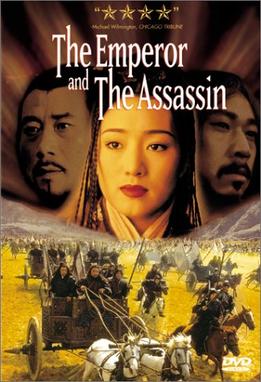
The Emperor and the Assassin, also known as The First Emperor, is a 1998–1999 Chinese historical romance film based primarily on Jing Ke's assassination attempt on the King of Qin, as described in Sima Qian's Records of the Grand Historian. The film was directed by Chen Kaige and stars Gong Li, Zhang Fengyi, Li Xuejian, and Zhou Xun. The film was well received critically and won the Technical Prize at the 1999 Cannes Film Festival. It was the most expensive Chinese film made up to that time, costing US$20 million.

Beijing Film Academy is a municipal public college in Beijing, China. It is affiliated with the City of Beijing, and co-funded by the Beijing Municipal People's Government, the National Radio and Television Administration, and the Ministry of Education.

Li Xiaolu, also known as Jacqueline Li, is a Chinese actress and singer. She is best known for her role in Joan Chen's directing debut Xiu Xiu: The Sent Down Girl (1998), idol drama All the Misfortunes Caused by the Angel (2001) and the popular youth series Struggle (2007). At age 16, she was the youngest actress to win the Golden Horse Award for Best Leading Actress.

Jasmine Women is a 2004 Chinese film directed and co-written by Hou Yong in his directorial debut. The film is an adaptation of Su Tong's novel Women's Life (妇女生活) and depicts the emotionally troubled lives of 4 generations of Shanghainese women from the 1930s to the 1980s. Jasmine Women stars Zhang Ziyi and Joan Chen, who both portrayed multiple characters, as well as Jiang Wen, Lu Yi, and Liu Ye.
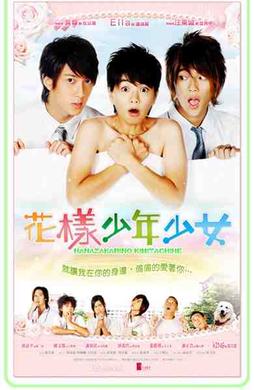
Hanazakarino Kimitachihe, is a 2006 Taiwanese drama starring Ella Chen of S.H.E, Wu Chun and Jiro Wang of Fahrenheit, and Danson Tang. It was based on Japanese shōjo manga series Hana-Kimi by Hisaya Nakajo.
Lü Yue is a Chinese cinematographer and film director.
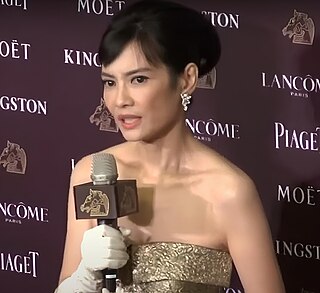
Chen Shiang-chyi is a Taiwanese actress. She has appeared in most of Tsai Ming-liang's feature films.
Siqin Gaowa, born Duan Anlin, is a Chinese-born Swiss actress. She was born in Guangzhou to a Han Chinese father and a Mongol Chinese mother. Her father died when she was 4, she was raised by her mother in Inner Mongolia. She has been married to musician Chen Liangsheng (陈亮声) since 1986 and currently holds Swiss citizenship together with her husband.

Geling Yan is a Chinese-American author and screenwriter.

Three Kingdoms is a 2010 Chinese television series based on the events in the late Eastern Han dynasty and the Three Kingdoms period. The plot is adapted from the 14th century historical novel Romance of the Three Kingdoms and other stories about the Three Kingdoms period. Directed by Gao Xixi, the series had a budget of over 160 million RMB and took five years of pre-production work. Shooting of the series commenced in October 2008, and it was released in China in May 2010.

Yan Shunkai was a Chinese comedian, actor and film director.

Knitting is a 2008 Chinese film directed by Yin Lichuan. Yin's second film as director, Knitting is a romantic drama. The film was adapted by Yin from the short story "The Story of Li Ai and Haihai" by author Amei.
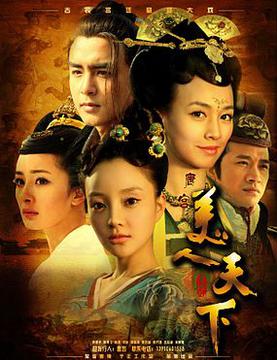
Beauty World, also known as Tang Gong Meiren Tianxia and World of a Beauty, is a Chinese fantasy-supernatural television series set in the Tang dynasty. It was directed by Lee Wai-chu, produced and written by Yu Zheng, and starred Zhang Ting, Ming Dow, Li Xiaolu, Mickey He, Zheng Guolin, Yang Mi and Tong Liya in the leading roles. The series is regarded as a counterpart to Beauty's Rival in Palace, a similar 2010 television series set in the Han Dynasty. It was first aired on 21 October 2011 on Guangzhou Zonghe Channel in mainland China.
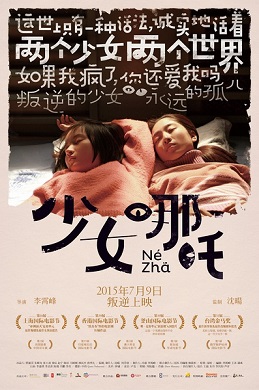
Nezha, stylized on some posters as 'NeZha' or 'Ne Zha', is a 2014 Chinese period drama film directed by Li Xiaofeng, in his directorial debut.

Surgeons is a 2017 Chinese television series produced by Hou Hongliang, directed by Li Xue and written by Zhu Zhu; starring Jin Dong and Bai Baihe. The series aired from 17 April to 10 May 2017 on Beijing TV and Zhejiang TV.
She, a Chinese is a 2009 international co-production drama film directed by Xiaolu Guo. Inspired by Jean-Luc Godard's La Chinoise, it portraits a fragmented journey of a young Chinese woman through the world. It won the 2009 Golden Leopard at the Locarno Film Festival.
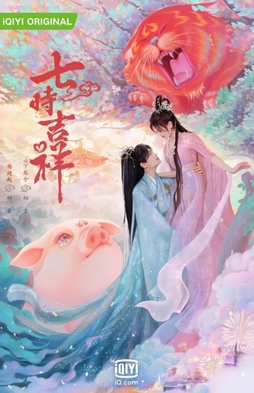
Love You Seven Times is a Chinese television series based on the novel Seven Unfortunate Lifetimes, All Thanks to a Single Moment of Impulse by Jiulu Feixiang, starring Ding Yuxi and Yang Chaoyue. The series aired on iQIYI on August 10, 2023.
















